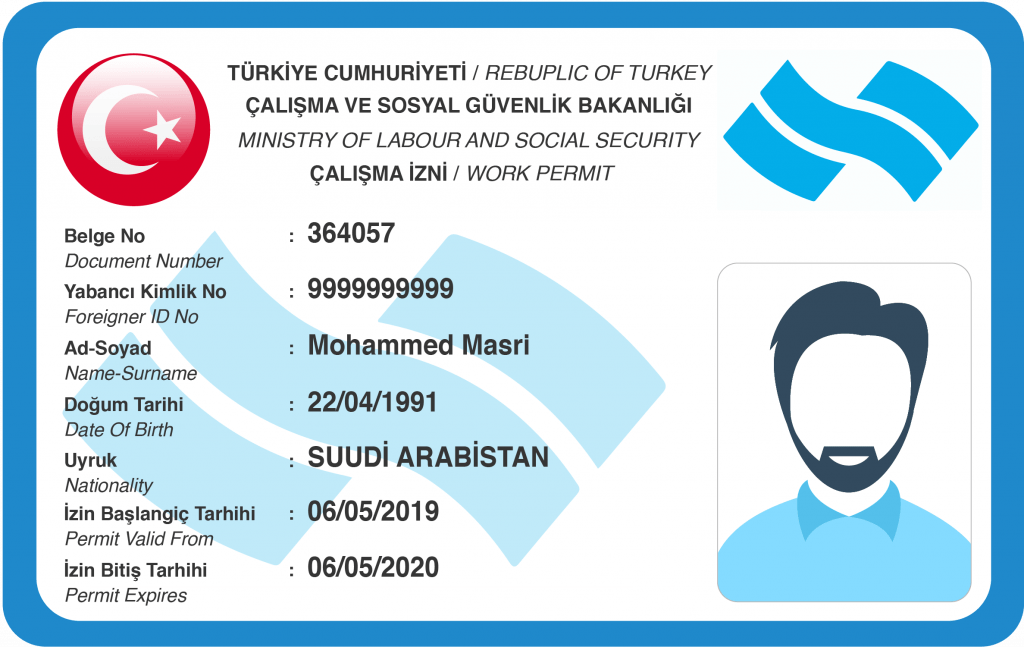Understanding Turkish business etiquette can be your key to unlocking opportunities in the vibrant market of Turkey. In the world of business culture in Turkey, principles like trust and relationship-building reign supreme. The first handshake isn’t just a simple greeting—it’s laying a foundation of potential partnerships. Meeting etiquette in Turkey often involves starting with personal pleasantries before diving into business details. For foreigners in Turkish business, it’s crucial to grasp these nuances. A misstep, like addressing someone too informally, can be more than a faux pas—it can unravel an entire meeting. Networking in Turkey thrives on face-to-face interactions. So, sharing a cup of Turkish tea might open doors more than a well-worded email. Understanding these customs ensures you’re not just seen as another business card, but a valued contributor in the Turkish marketplace. With these insights, navigate your next venture in Turkey with confidence and clarity.
Key Cultural Nuances That Influence Business Interactions
Navigating Turkish business etiquette requires understanding some key cultural nuances. In Turkey, business culture is intertwined with respect for hierarchy and titles. When addressing Turkish executives, anticipate using titles such as “Bey” for men or “Hanım” for women. This demonstrates acknowledgement of their status and role. Additionally, the concept of “Gönül,” meaning heart or sincerity, often guides interactions. It’s not just what you say, but how earnestly you say it, impacting everything from negotiations to networking in Turkey. Trust is gradually built but highly valued. For foreigners in Turkish business, recognizing these subtleties can significantly enhance business interactions. Ignoring these can be akin to shooting oneself in the foot. Understanding meeting etiquette in Turkey is essential; meetings may start late, but patience often proves rewarding. Consciously respecting these cultural aspects ensures smoother engagements and fosters long-lasting business relationships.
In the landscape of Turkish business etiquette, understanding key cultural nuances offers a distinct advantage. Punctuality, for instance, holds a unique place—while meeting times are set, expect a flexible start. This isn’t lateness; it’s a rhythm of business culture in Turkey, where personal relationships take precedence. Networking in Turkey often resembles a delicate dance, where reading between the lines can be just as important as spoken words. The notion of honor and saving face plays a significant role, so handling disagreements with subtlety is wise. Dressing professionally also reflects respect and readiness; conservative attire is typically favored. For foreigners in Turkish business, fluency in these subtleties eases interactions and builds bridges. Engaging in local customs like exchanging gifts can leave memorable impressions. Remember, in the realm of meeting etiquette in Turkey, patience isn’t just a virtue—it’s a necessity for nurturing trust and unlocking doors to successful collaborations.
Understanding Turkish business etiquette involves recognizing the art of communication and body language. In the business culture in Turkey, gestures speak as loudly as words. Avoid crossing arms or sitting with your ankle on the knee, as they can be seen as dismissive. A firm handshake coupled with direct eye contact indicates respect and attentiveness. Networking in Turkey thrives on warmth; expressing genuine interest in local customs can forge strong bonds. Don’t underestimate the power of a smile; it can bridge cultural divides. For foreigners in Turkish business, showing empathy and attentiveness enhances rapport. Moreover, the concept of “Misafirperverlik,” or hospitality, plays a crucial role in meetings. Expect to be offered tea or coffee—it’s more than refreshment; it’s a gesture of camaraderie. Engaging sincerely in these exchanges leaves a lasting impression. By embracing these facets, you pave the way for fruitful and enduring business interactions.
Essential Communication Strategies for Effective Engagement
In the landscape of Turkish business etiquette, words carry weight. Effective communication in this realm means more than just speaking the language; it’s about understanding the subtleties of tone, gestures, and timing. In the business culture in Turkey, pausing to ask about family or share a personal story is not only polite—it’s expected. These conversational exchanges foster a sense of camaraderie, which is essential in building trust. Whether you’re seated at a formal meeting table or casually sipping coffee, maintaining eye contact signals respect and engagement, key elements in meeting etiquette Turkey embraces. Remember, patience is a virtue here; rushing through discussions won’t win any favors. For foreigners in Turkish business, the real secret is active listening. It’s the unsung hero of networking in Turkey, transforming conversations into collaborative opportunities and paving the way for successful partnerships.
When navigating the intriguing world of Turkish business etiquette, understanding the nuances of communication can be your golden ticket. In the business culture in Turkey, knowing how to convey respect through words and actions is paramount. A key aspect of meeting etiquette Turkey employs is punctuating conversations with genuine interest and attentiveness. This means more than just hearing words; it means listening between the lines and catching unspoken cues. For foreigners in Turkish business, a firm yet friendly tone opens dialogues, while tactfully chosen words lay pathways for collaboration. Networking in Turkey isn’t limited to business hours—invitations to social events can be the glue that strengthens professional ties. Each encounter is an opportunity to weave stories and establish rapport. By harnessing these essential communication strategies, you don’t merely participate in discussions—you enrich them, ensuring your presence in Turkey’s business arena leaves a lasting impression.
To truly excel in Turkish business etiquette, refining your communication approach is crucial. In the business culture in Turkey, it’s the heartfelt gestures and the art of conversation that win the day. Meeting etiquette Turkey highlights the importance of starting interactions on a warm note, such as inquiring about well-being before venturing into negotiations. For foreigners in Turkish business, embracing the rhythm of these social exchanges is vital. Networking in Turkey often involves reading between the lines—eyes and ears must function in harmony. Demonstrating genuine care for your counterpart’s perspective can bridge cultural divides. A handshake, or even a sincere nod, can speak volumes. Foreign businessmen should remember that every dialogue is an opportunity—not just to voice your ideas but to showcase your adaptability. Thus, these communication strategies serve as your compass, guiding your journey through Turkey’s rich and dynamic business landscape.
Navigating Hierarchies and Decision-Making Processes in Turkey
Navigating hierarchies in Turkish business etiquette is akin to mastering a complex dance. In the business culture in Turkey, hierarchy isn’t merely a structure—it’s an essential component that guides interactions and decision-making processes. Typically, decisions are made by those at the top, reflecting the importance placed on seniority and respect for authority. Meetings often involve multiple levels of hierarchy, and acknowledging the presence of senior figures is crucial. Foreigners in Turkish business would do well to remember this; recognizing and respecting these layers can mean the difference between a successful partnership and a missed opportunity. Developing relationships with key decision-makers is invaluable. It’s not just about what you know, but who you know. Networking in Turkey often flows along these hierarchical lines, with meaningful connections built not just through formal meetings but also through informal gatherings.
In Turkish business etiquette, communication style shapes the success of interactions. Harmonizing your approach with the business culture in Turkey requires finesse and patience. When attending meetings, remember that personal rapport often precedes discussions on commerce. Addressing individuals with the proper titles and showing deference to seniority can pave the way for smoother negotiations. Unlike some Western practices where directness is valued, subtlety and tact prevail in meeting etiquette in Turkey. Misunderstandings can arise if one isn’t attuned to these cultural cues. For foreigners in Turkish business, adjusting communication strategies is vital. Networking in Turkey is enhanced when you actively listen and respond thoughtfully, recognizing the importance of each word—and pause—in conversation. Embrace these customs, and you’ll find doors opening to fruitful connections and collaborations. A genuine willingness to understand and adapt can transform business encounters from mere transactions into lasting alliances.
In Turkish business etiquette, patience is a virtue, especially when it comes to decision-making. Due diligence and thorough deliberations underline the business culture in Turkey, where quick decisions aren’t the norm. Steering through the decision-making process may feel like navigating a labyrinth; patience and understanding are your guiding lights. For foreigners in Turkish business, this slow-paced yet meticulous approach can be perplexing. Nevertheless, respecting this process is crucial. Meetings may stretch longer and deadlines might be flexible, but each step strengthens the foundations of trust. Achieving consensus among multiple stakeholders is essential, and in such scenarios, the role of intermediaries can’t be overstated. Networking in Turkey thrives on these relationships, which often bridge gaps and facilitate smoother transactions. Engage these dynamics with a strategic mindset and the resilience to adapt. Embrace this journey with open arms, and you’ll likely find yourself welcomed into the inner circles of Turkish business networks.






